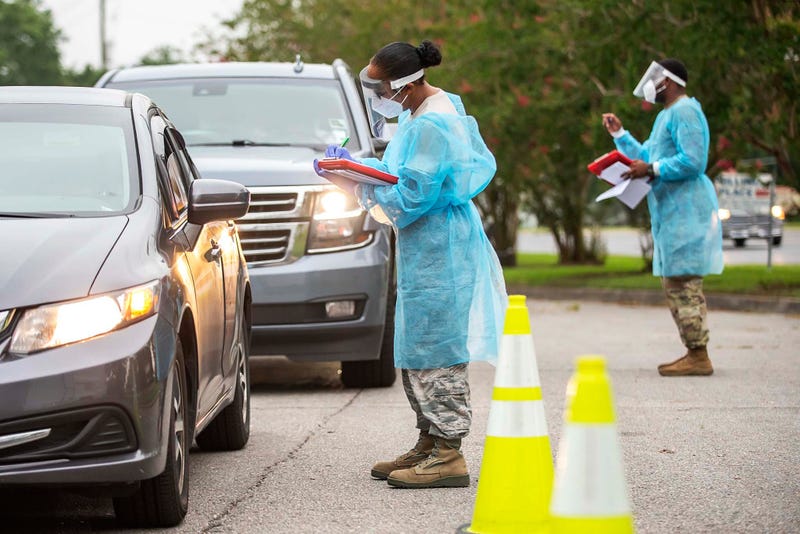
National Guard members activated to fight COVID-19 across the country are still paying healthcare premiums upon returning home. Sen. Jon Tester, D-Mont., wrote a letter to Secretary of Defense Mark Esper requesting it be waived.
"At a time when access to health care is of utmost importance to Americans and their families, service members should not have to worry about this potentially burdensome expense as they return home following their sacrifices to keep their country healthy,” Tester wrote to Esper. “As such, I request that you waive the requirement that these individuals pay for two months of premiums in advance to better assist their transition back to civilian life."
The benefit allowances for the nearly 46,500 National Guard members activated in COVID-19 operations have been under close scrutiny since late May when it was revealed federal orders would stop coronavirus pandemic deployments for National Guard troops just one day shy of qualifying them for education and retirement benefits.
National Guard COVID orders end one day short of earning retirement, education benefits
A week after this shortfall was reported, President Donald Trump extended Title 32 orders for many of those individuals, ensuring they received additional benefits. But National Guard troops still face healthcare expenses upon returning to reserve status.
"When these service members return to reserve status, they have to pay two months of premiums in advance to maintain healthcare coverage under TRICARE Reserve Select," Tester wrote in his letter. "In this already uncertain and difficult time, these men and women should not be concerned about financial hardships in maintaining their families' access to healthcare coverage."
As of Monday, the Department of Defense had reported 2,445 positive COVID-19 cases among National Guard troops. National Guard troops activated against COVID-19 were designated in the highest priority tier for DoD testing meaning they should have easier access to regular COVID-19 testing and positive rates among this population should be more accurate than among the active-duty component which is still only conducting "sentinel" or limited testing.
The very first service member COVID-19 fatality on March 30 was Capt. Douglas Linn Hickok, a New Jersey National Guard member activated in the initial push to contain COVID-19.
The military's new COVID-19 infection rate is double the general population's
"The fight against coronavirus is not over and National Guard resources will continue to be essential to support state and local communities overwhelmed by the pandemic in the months ahead," Tester's letter continues. "Our nation will come out of this crisis in no small part because of the work of the men and women who serve our country every day. I look forward to your response."
--
